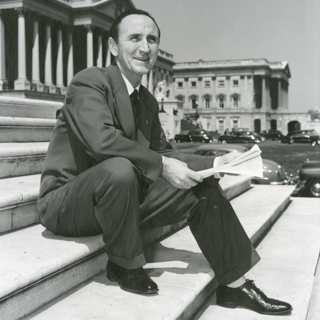Dr. Anthony Fauci said the best way to counter vaccine hesitancy is with respect and a step-by-step explanation of why it’s safe as he answered questions from a Montana audience on the future of the COVID-19 pandemic.
Fauci, the director of the National Institute of Allergy and Infectious Diseases and chief medical adviser to President Joe Biden, spoke virtually to over 5,000 people last Wednesday in “A Conversation with Dr. Anthony Fauci” for the annual Mansfield Lecture.
Fauci acknowledged the historic nature of the pandemic that has killed over 2.3 million people worldwide before he discussed its future.
“I don’t think anyone could have imagined that things would have been this bad for over a year,” he said. “We’re making a lot of progress now, but we have been through a very, very extraordinary and historic experience that isn’t over yet.”
Fauci highlighted the development of a vaccine in less than a year, an achievement he previously would not have believed possible.
“If anyone would have told any one of us with experience in vaccinology, ‘Could this have been possible?’ We would have said ‘Absolutely not,’” he said.
Fauci credited the decade-long biomedical research for the quick vaccine development. He said development of a vaccine began five days after the sequence of the novel coronavirus was published in a public database in January 2020.
Robert Saldin, the director of the Mansfield Center’s Ethics and Public Affairs Program, said the lecture was unique because it was an extended discussion with Dr. Fauci with questions specific to Montana.
“What we wanted to do with this was get him to speak to some of the unique issues that we face with this pandemic in Montana and that he doesn’t typically get asked about,” he said.
One of these issues is the vaccine hesitancy seen in rural and Indigenous communities.
Kaylee Kronsperger, a human biological sciences major, said she has seen firsthand the vaccine hesitancy in her hometown of Eureka, Montana, where some are skeptical to give their kids even routine vaccinations.
“How do you recommend healthcare professionals convey the importance of this vaccine when people still refuse to do things like wear masks or socially distance?” she asked.
Fauci said there’s no easy answer, but combatting vaccine skepticism starts with respect.
“You’ve got to go step-by-step and counter the reasons for the skepticism, while at the same time not criticizing people for their skepticism, but respecting their skepticism, and hopefully you’ll win over at least a portion of the people who have hesitancy about vaccinations,” he said.
Shelly Fyant, the chairwoman of the Confederated Salish and Kootenai Tribes, asked a similar question about vaccine hesitancy among tribal members who have been systematically mistreated by the federal government.
Fauci said the skepticism makes sense because of the federal government’s poor track record with its treatment of Indigenous people, but any unethical considerations with the vaccine would be “impossible” due to the independent review boards apart from the federal government and pharmaceutical companies.
He also said it would be troubling to see Indigenous people not get vaccinated because of the disproportionate effects the virus has had on Indigenous people and other minority groups.
Fauci said if people with vaccine hesitancy can be convinced to get vaccinated, there’s a good chance the United States could reach a vaccination rate of 70-85% and herd immunity by mid-to-late fall, though masks will likely stick around longer. He said this could usher in some normality, the extent of which is dependent on a number of factors, including variants of the virus.
Fauci also discussed people dealing with long-term effects of COVID-19.
Lisa Beard spoke about the long-term effects her son, seventh grader Hudson, has had since he tested positive for COVID-19 in mid-November. Beard, an emergency room nurse, said her son is in constant pain with symptoms including dizziness, migraines, enlarged arteries and weakness on the left side of his body similar to the effects of a stroke.
“No other doctors can help me, can you help me?” Hudson asked.
Fauci said it’s unclear how Hudson’s symptoms will change over the next few months or year, but he’s hopeful the long term effects of the syndrome will correct themselves.
Fauci said Hudson’s case displays a common misconception that children are immune to the serious effects of COVID-19. He said post-acute COVID-19 syndrome (PACS) is more common in adults, but it can be seen in children like Hudson too.
Dr. Greg Holzman, the state medical officer, asked Fauci about how the number of public health officials in government can be increased after the recent reductions seen nationwide.
Fauci said public service in health and science needs to be sold better with a focus on the potential far-ranging impact one’s work can have in a field that still excites him.
“I get up and do what I have to do every day, and I’ve been doing it for a very long time, so if it could be sustained for that long period of time it’s at least worth young people taking a look at,” he said.
Article originally published at http://www.montanakaimin.com/news/fauci-looks-to-the-future-in-mansfield-lecture/article_3d8d81f8-75e4-11eb-848e-5f7a1e708460.html
